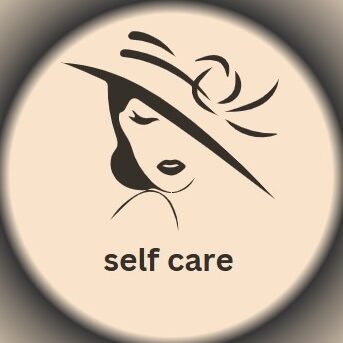Catching those ZZZs isn’t just a fun phrase—it’s one of the most important habits for your physical and mental health. When you get enough sleep, your brain resets, your body repairs, and your energy returns. Sadly, many people ignore this simple self-care act, leading to fatigue, mood swings, — it’s a lifestyle habit that can transform how you feel every single day. In today’s fast-paced world, sleep often takes a backseat, leaving us tired and drained. This guide explores why sleep is so essential, what happens when you don’t get enough of it, and how you can finally start enjoying peaceful, energizing rest every night.Getting enough sleep isn’t a luxury — it’s a necessity. Yet in today’s busy world, many of us treat sleep like an optional part of life. We scroll through social media late at night, binge-watch shows, or keep thinking about tomorrow’s to-do list. The result? We wake up feeling tired, moody, and unmotivated.
Let’s talk about why sleep matters so much, what happens when we don’t get enough of it, and how to finally start catching those precious ZZZs.
Why Sleep Matters More Than You Think
Getting deep, quality sleep is what catching those ZZZs truly means. It’s not just about hours; it’s about how peaceful your rest is. Sleep allows your body to recover and your brain to process thoughts clearly.
Tip: Try to build a night routine that signals your body it’s time to rest. Dimming lights, reading, or meditating can help your body relax naturally.Sleep is not just about resting; it’s the body’s natural way to recharge and repair itself. When you sleep, your brain processes information, forms memories, and clears out toxins that build up during the day.
- For the mind: Sleep helps improve focus, memory, and emotional stability.
- For the body: It supports muscle repair, immune strength, and balanced hormone levels.
- For beauty: Believe it or not, sleep gives your skin a natural glow, reduces dark circles, and slows down aging.
Without proper sleep, even small tasks can feel impossible, and your mood can swing for no reason. So yes — sleep is truly your body’s best friend.
The Hidden Effects of Sleep Deprivation
Skipping sleep might not seem like a big deal, but its effects slowly build up. Here’s what happens when you don’t get enough rest:
- You become more forgetful: Your brain struggles to store new memories.
- Your focus drops: You can’t concentrate well, especially on detailed tasks.
- Your mood changes: You may feel irritated, anxious, or sad for no clear reason.
- Your health suffers: Poor sleep is linked to obesity, diabetes, heart disease, and low immunity.
- Your looks fade: Dull skin, tired eyes, and breakouts can all appear due to lack of sleep.
When you miss out on sleep regularly, your body goes into a constant state of stress. Over time, this affects your hormones, mental clarity, and even your confidence.
How Much Sleep Do You Really Need?
Everyone’s sleep needs are a little different, but here’s a general guideline:
- Children (6–12 years): 9–12 hours
- Teenagers (13–18 years): 8–10 hours
- Adults: 7–9 hours
- Older adults (60+): 6–8 hours
It’s not just about how long you sleep — but also about how well you sleep. Quality sleep means you fall asleep easily, stay asleep through the night, and wake up feeling refreshed.
Signs You’re Not Getting Enough Quality Sleep
Even if you go to bed early, poor-quality sleep can make you feel exhausted. Look out for these signs:
- You wake up feeling tired or groggy.
- You rely on caffeine to stay awake.
- You have trouble focusing during the day.
- You feel more emotional or short-tempered than usual.
- You often fall asleep while watching TV or reading.
If you recognize these signs, it’s time to improve your sleep habits before they affect your health further.
Simple Ways to Improve Your Sleep Naturally
Small changes in your daily routine can make a huge difference. Here are some practical tips to help you sleep better:
1. Create a Sleep Routine
Go to bed and wake up at the same time every day — even on weekends. This trains your body’s internal clock, helping you fall asleep faster.
2. Limit Screen Time Before Bed
The blue light from phones and TVs tells your brain it’s still daytime. Try to stop using screens at least 30–60 minutes before bedtime. Instead, read a book or listen to calming music.
3. Keep Your Room Cool and Dark
Your bedroom should feel cozy, quiet, and slightly cool. Soft lighting, clean sheets, and blackout curtains can make a big difference.
4. Avoid Heavy Meals and Caffeine Late at Night
Caffeine and sugary snacks can keep your brain active. Have your last cup of tea or coffee before 5 p.m. and avoid eating large meals right before bed.
5. Try Relaxation Techniques
Deep breathing, gentle stretching, or meditation can calm your body and mind, helping you drift into sleep more easily.
6. Make Your Bed a Sleep-Only Zone
Avoid doing work or watching TV in bed. Train your brain to associate the bed with only two things — sleep and relaxation.
The Power of a Bedtime Ritual
Think of your bedtime routine as a signal to your brain that it’s time to slow down. A simple ritual might include:
- Taking a warm shower
- Applying a soothing moisturizer or lavender oil
- Dimming the lights
- Reading a few pages of your favorite book
This gentle transition from activity to rest helps your body prepare for deep, peaceful sleep.
Sleep and Mental Health: A Strong Connection
Good sleep can actually improve your emotional health. When you rest well, your brain manages stress better, your mood lifts, and you can handle challenges with a calmer mind. On the other hand, poor sleep can make anxiety or sadness worse.
If you’ve been feeling down or anxious lately, focusing on better sleep can be one of the easiest ways to start healing from within.
Final Thoughts: Prioritize Your Sleep
Catching those ZZZs isn’t just about closing your eyes — it’s about giving your body and mind the time they need to restore balance. Think of sleep as an investment in your happiness, focus, and energy.
Start small. Go to bed a little earlier tonight. Turn off your phone, dim the lights, and give yourself permission to rest. Because when you sleep better, you live better.




